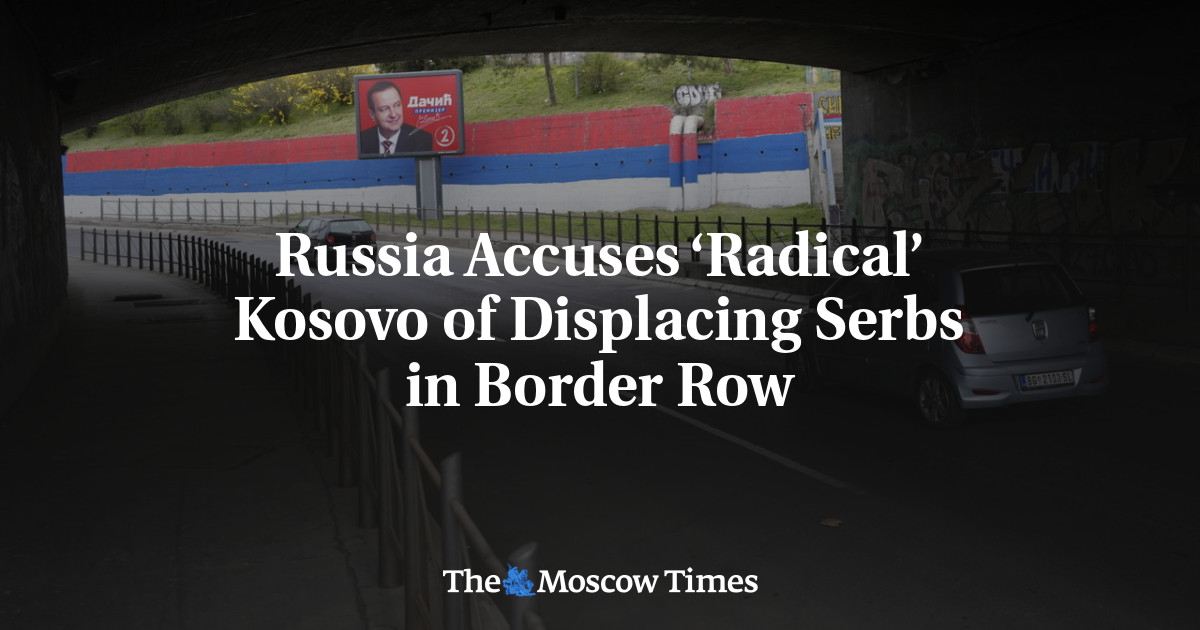
Russia has accused “radical” Kosovo of attempting to displace Serbs from the north of the Balkan country with new border rules that have renewed tensions.
Kosovo police closed two border crossings with Serbia on Sunday after it took on gunfire and ethnic Serbs blocked roads along the border. Ethnic Serbs, who make up a majority of the population in northern Kosovo, were protesting Pristina’s requirements for them to obtain temporary documents and license plates while visiting Kosovo — a move that Pristina defends as reciprocal to Belgrade’s.
Kosovo agreed to delay the implementation of the plan for one month until Sept. 1 after the protests and talks with EU and U.S. ambassadors.
Russia’s Foreign Ministry accused Kosovo of taking “another step toward the expulsion of the Serbian population from Kosovo [and] the ouster of Kosovo Serbian institutions that protect the rights of Serbian residents from the arbitrary rule of Pristina radicals.”
“Kosovar leaders know that Serbs will not be indifferent to a direct attack on their freedoms, and they are deliberately aggravating it in order to launch a violent scenario,” ministry spokeswoman Maria Zakharova said in a statement late Sunday.
Zakharova said the Serbia-Kosovo tensions served as “further evidence of the failure of the EU mediation mission.”
EU-led talks launched in 2011 have so far failed to normalize ties between Belgrade and Pristina.
Serbian President Aleksandar Vucic said earlier Sunday that “Serbia will win” if Serbs are attacked, noting that “the atmosphere has been brought to a boil.”
Kosovo Prime Minister Albin Kurti accused Vucic of igniting “unrest” and called for the removal of barricades on Monday.
More than 100 countries except Serbia and Russia recognize Kosovo’s independence.
Kosovo declared independence in 2008, a decade after NATO-led bombing ended a war between the neighbors.
Bound by culture and the Orthodox Church, Serbia lies within Russia’s former sphere of influence in ex-communist Europe, although the EU is by far the biggest foreign investor.